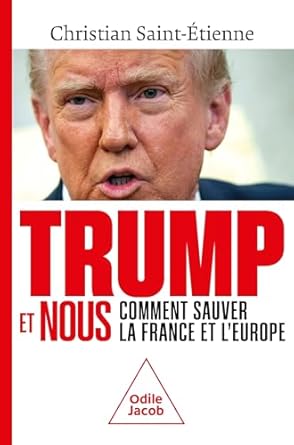Is a new world order being created? China and Russia want to de-dollarize the world, the race for economic, military, and financial supremacy is open. Since the re-election of Donald Trump, the United States does not really seem to want to build alliances with democratic countries. The 47th President initiated his new mandate with a declaration of commercial war, ending 70 years of multilateralism. On April 2, during his announcement on “Liberation Day”, Trump locked the United States in a customs citadel.
Faced with this upheaval in the hierarchy of nations, Europe seems to be in dire straits. It has failed to enter the digital world and is lagging behind in processors, it faces productivity problems, it is over-regulated with constrained funding, and is in a delicate geostrategic situation. The Draghi report made a scathing observation of all the shortcomings of this European bureaucratic world.
For the author, Europe has become “a bureaucratic machine powerless against the United States, China, and Russia”, governed by regulations and prohibitions rather than by a clear strategic vision. While this Europe, which made economic, social, and moral progress possible in the 17th and 18th centuries through the competition of useful knowledge, has many assets.
To do this, it will be necessary to review the role and missions of the European Commission, which were established in another world 7 decades ago. An entrepreneurial and decentralized approach must be adopted, fostering innovation. It must have a real capacity to control imports, an obligation to act in the service of European sovereignty, simplify bureaucratic procedures, encourage the development of AI, promote research infrastructures, and relaunch industry while maintaining the decarbonization trajectory by boosting its productivity. But can we entrust the Brussels bureaucracy with the mission of de-bureaucratizing? The answer is obviously no, we must develop agencies such as DARPA or BARDA, which are at the origin of major innovations in the United States, within an intergovernmental European alliance for research and technology.
The European Union must focus on three objectives: building an integrated market with reciprocal openness and therefore closure with our trading partners, enforcing the foundations of liberal democracy, and promoting sustainable growth. At the same time, we must create a cooperative of nations with a qualified majority, built on the principle of strategic power and not bureaucracy, which will be in charge of industry, defense, research, and innovation. This core would be the third world power, contributing to international geostrategic stabilization.
Christian Saint-Etienne, est universitaire ayant enseigné à Science Po, Dauphine et au CNAM
Philippe Alezard


